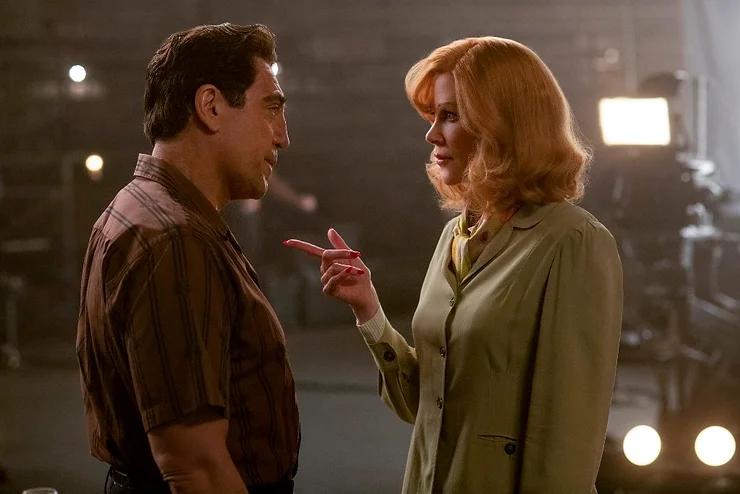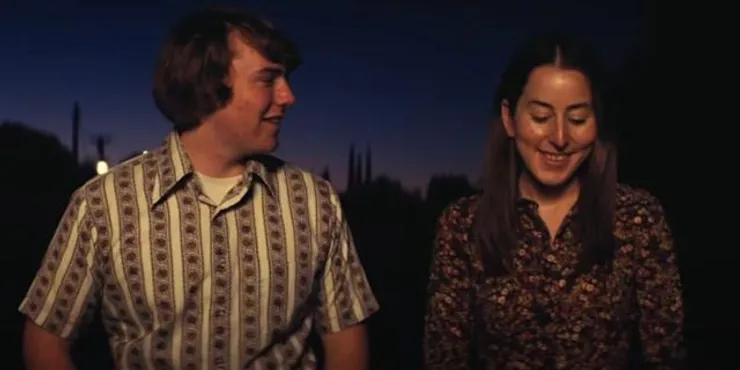Sirens Call (Germany and Netherlands, 2025)
Original title: Sirens Call
Director: Miri Ian Gossing e Lina Sieckmann
Screenplay: Miri Ian Gossing e Lina Sieckmann
Main cast: Gina Rønning, Moth Rønning-Bötel, Rei Spider Barnes, Jason Bötel and Mark Ginsberg
Running time: 121 minutes
The idea of a documentary about people who identify as mermaids is very interesting to me. Since I had never seen anyone with this identity, curiosity is always the first thing to come to mind, and with the documentary’s extremely artistic visual identity, this becomes even more intriguing. When we meet the first person portrayed, Gina Rønning, this curiosity only increases: between perfectly arranged costumes and a forcefully mystical voice, we understand that the documentary is talking about these existences that defy the capitalist logic of having value only through production.
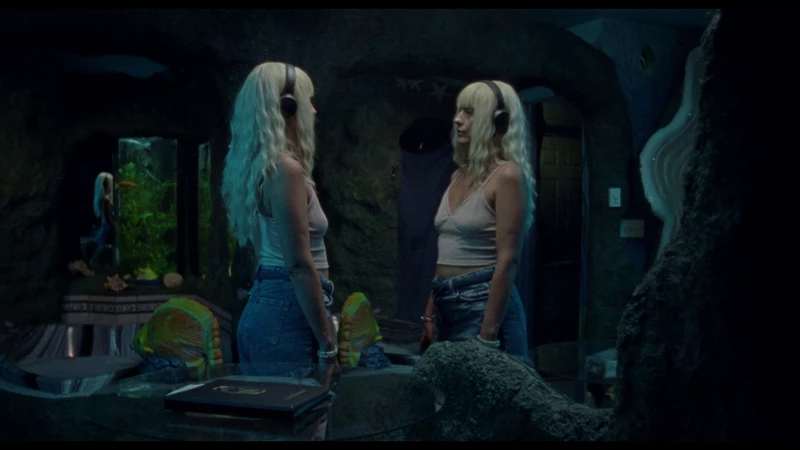
However, as it develops, we realize that the documentary maker is so concerned with telling a previously developed story that she ends up losing a latent narrative on the screen: who’s this woman beyond her identity as a mermaid. In the few moments when we see her breaking the mask of character a little, we realize that she’s also an interesting person in her own right, with a super interesting work with prisoners in rehabilitation.
So, the question remains: is it better to make a beautiful manifesto about nature or to look at the person who’s in front of you? Of course we can’t expect a film to be different from what it is, but I admit that this was a case where I wanted to see a film that doesn’t exist.
Holding Liat (EUA, 2025)
Original title: Holding Liat
Director: Brandon Kramer
Screenplay: Ra’anan Alexandrowicz, Carol Dysinger and Gordon Quinn
Main cast: Aviv Atzili, Aya Atzili, Liat Beinin Atzili, Netta Atzili, Ofri Atzili, Chaya Beinin, Joel Beinin and Tal Beinin
Running time: 93 minutes
Considering the documentary’s theme, which was the kidnapping of Liat Beinin Atzili by Hamas at the beginning of this new war between Israel and Palestine, and the fact that it was an American production, I already imagined that I would leave the theater feeling somewhat angry. But, fortunately, I was surprised by a much more thoughtful production than I imagined.

Recorded by a family at a delicate time when two of their relatives were missing, there’s obviously a very specific bias of a family desperate to find their loved ones. But even within this chaotic situation, the issue is approached in a very critical way, mainly due to Liat’s father’s view of American and Israeli foreign policy, which is surprisingly clear and understands that the resolution of this problem for his family isn’t a definitive resolution to a much more complex conflict.
It’s quite a coincidence that the family that had the opportunity to record such a first-hand documentary of the chaos and destruction was also a family that was so polarized, and that could give a glimpse of how there are people with different political positions even among those affected. Obviously, it’s sad to see destruction and even think about the consequences after the conflicts reported, but it’s also a chance to see first-hand how diplomatic issues play a big role in negotiations.
The Old Woman with the Knife (South Korea, 2025)
Original title: 파과
Director: Min Kyu-dong
Screenplay: Kim Dong-Wan and Min Gyoo-dong, based on the work by Gu Byeong-mo
Main cast: Lee Hye-young, Kim Sung-cheol, Yeon Woo-jin, Kim Moo-yul, Yang Ju-mi and Shin Si-ah
Running time: 120 minutes
All movies that feature elderly people performing well-planned action scenes have a special place in my heart. So I couldn’t help but watch the movie in which Honeyclaw (Lee Hye-young) has to revisit the monsters from her past as a hitman to carry out one last hunt for a mysterious person who’s trying to get to her.
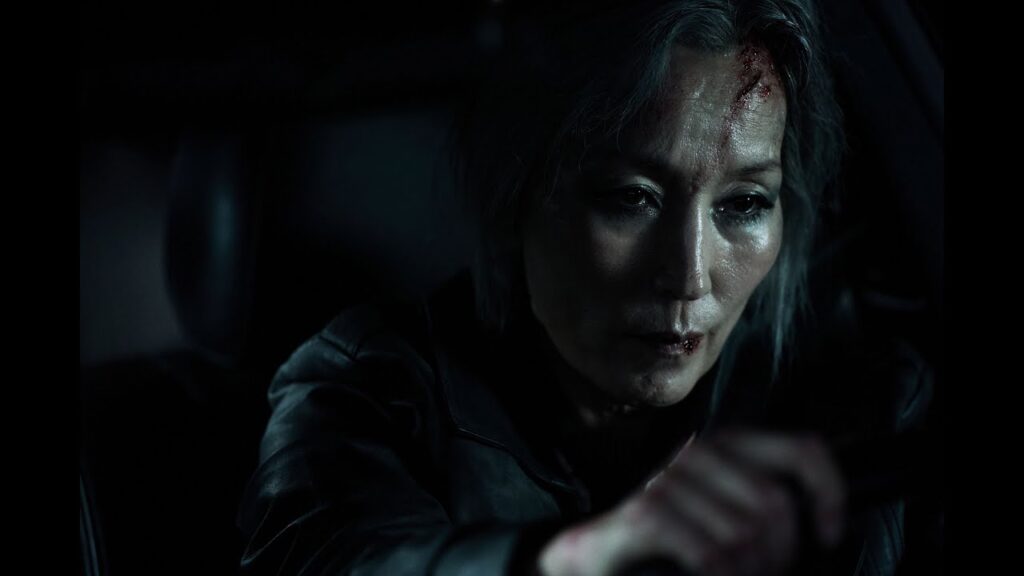
If we already know that Korean cinema often manages to mix great social criticism with scenes of action and widespread killing that are worthy of note, expectations for the film were high. Unfortunately, perhaps even because of these expectations created, the film ends up falling into generic plots and solutions that leave the viewer clamoring for more. The action scenes are evidently well-constructed, but there’s no character development or subtext that justifies them, making it difficult to connect with the film.
While it isn’t a difficult film to watch or even enjoy, it ends up being one of those works that are forgotten as soon as the lights come on.
Ancestral Visions of the Future (Germany, Lesotho, France, Qatar and Saudi Arabia, 2025)
Original title: Ancestral Visions of the Future
Director: Lemohang Jeremiah Mosese
Screenplay: Lemohang Jeremiah Mosese
Main cast: Bernardo Lobo Faria, Rehauhetsoe Kotsoane, Mochesane Kotsoane and Siphiwe Nzima-Ntske
Running time: 90 minutes
When we think of films, it’s difficult to find directors who dare to make works that are based more on a poetic form than on narrative. This is exactly what Lemohang Jeremiah Mosese does in his new work, which has a rhyme about its origin and creation that extends throughout the work, but which dares to venture more into the senses of the spectators than necessarily creating a story with a beginning, middle and end.

What the director does is a deep dive into his subconscious while at the same time making a political cry about the period of colonization of the African continent. Through his experiences, memories and feelings about being an emigrant from Lesotho, he tells a little about the history of his country and the difficulties he’s gone through and still goes through.
The choice of the poetic format may work well for more open-minded spectators, but unfortunately it loses many people less accustomed to works that are more open to interpretation. People who come to the film because of the director’s previous work will probably be greatly impacted by this radical change in language.
Lurker (USA and Italy, 2025)
Original title: Lurker
Director: Alex Russell
Screenplay: Alex Russell
Main cast: Théodore Pellerin, Archie Medekwe, Sunny Suljic, Cam Hicks, Chaize Macklin, Zac Fox, Daniel Zolghadri and Havana Rose Liu
Running time: 100 minutes
Alex Russell’s taking advantage of the great moment in his career as a screenwriter for The Bear, a series that has been both acclaimed by fans and awarded by the industry, to launch his first project as a screenwriter and director of a feature film. Here, he tells the story of Matthew (Théodore Pellerin), a completely normal boy who works in a clothing store and who, when opportunity knocks, uses all his tricks to enter the circle of friends of Oliver (Archer Madekwe), a very promising young singer.

More than a story that borders on a psychological thriller as the obsession begins to appear, the work’s a great character study between the boy who fights to be accepted and the one who’s simply idolized. With touches of homoeroticism and interesting details about the pop culture of that specific moment in time, the film’s great at creating tension – but unfortunately, it isn’t so satisfactory in resolving it.
Its greatest strengths lies in the performances of the main characters, who manage to elevate the script to the extent that they make us interested in their lives. With a very limited view of the possibilities of existence within the cultural universe, we feel that the work doesn’t dare to cross certain barriers, which doesn’t make much sense with the idea of the narrative itself. Even so, it’s a debut film that’s quite clear in its intentions and that manages to transport the viewer smoothly through its narrative.
Bajo las banderas, el sol (Paraguay, Argentina, Germany, USA and France, 2025)
Original title: Bajo Las Banderas, El Sol
Director: Juanjo Pereira
Screenplay: Juanjo Pereira
Running time: 90 minutes
There are some documentaries that tell stories so surreal that they seem like works of fiction, and this is exactly the case of Bajo Las Banderas, El Sol, which deals with the dictatorship that took place in Paraguay. Through an analysis of more than 100 hours of footage produced at the time, the director managed to create a cut that tells the story of what happened clearly and shows some of its worst events.

The film works very well as a great editing exercise, since several pieces of news reports that took place in different corners of the world are used to recreate a narrative in an accessible way. Due to the different languages and aspects of the images, this creates a particular visual style for the film, which also manages to distance itself from the reportage aesthetic that often occurs in documentaries.
A film that’s essential for South Americans, with a great rhythm and a story that’s little known even in neighboring countries.
Queerpanorama (Hong Kong, China and USA, 2025)
Original title: 眾生相
Director: Jun Li
Screenplay: Jun Li
Main cast: Jayden Cheung, Arm Anatphikorn, Zenni Corbin, Sebastian Mahito, Erfan Shekarriz, Phillip Smith and Ko-Yuan Wang
Running time: 87 minutes
Imagine that, with each encounter made through a casual sex app, you absorb part of the personality of that other person, or at least decide to perform part of that personality. This is the idea behind Jun Li’s new film, which tells the story of a young man (played by Cheung) who goes through several encounters, from the sweetest to the most traumatic, and goes through a journey of transformation of his personality and search for his own meaning as a young adult suffering from the loneliness of a gay man.

Playing with the cliché of the LGBTQIAPN+ universe, the director manages to make a sensitive and realistic work about this moment of searching for one’s interests and values. And, as in every great film, he manages to do so through a super specific example, that of the experience of a gay man in Hong Kong, but in a way that people from different backgrounds can relate to what’s presented.
With a very elaborate black and white photography – and coming from the director’s own color blindness, who based the film’s script on his own experiences – and a confident and profound performance by Jaden Cheung, we can understand the complexity and loneliness of this existence. It’s also important to comment on the sex scenes, as the naturalness with which they’re conducted and the eroticism often present are a complex balance. Even the lines placed in this context are very well placed and give an additional layer of interpretation to the work.
Delicious (Germany, 2025)
Original title: Delicious
Director: Nele Mueller-Ströfen
Screenplay: Nele Mueller-Ströfen
Main cast: Fahri Yardim, Valerie Pachner, Carla Díaz, Naila Schuberth, Caspar Hoffman, Julien de Saint Jean and Melodie Casta
Running time: 102 minutes
Class struggle is an element present in all forms of art, and it couldn’t be otherwise in cinema. From Metropolis (1927) to The Working Class Goes to Heaven (1971), there’s no shortage of great works from different countries and genres that deal with this basic mechanism of society. Thus, when creating another work that contributes to this great history of classics, it’s necessary to add a strong element of originality and authorship to create a work that won’t be forgotten the very moment the film ends. Unfortunately, Nele Mueller-Ströfen wasn’t able to do so.

The feature film fits all the stereotypes of films produced for streaming, and it’s itself produced for Netflix. With a multitude of images taken by drones that look fantastic on screen, this plasticity doesn’t translate into a well-directed drama with a solid and surprising script. On the contrary, we have a work that gives too many clues and leaves little to the imagination, creating very predictable plot twists that seem to have been put there just to shock.
As a mix of Saltburn (2023) and Parasite (2019), it lacks originality and the possibility of adding something to the conversation on an important and relevant topic. On the contrary, one feels that the script even uses its ability to create characters to reproduce prejudiced stereotypes about other European countries.
Girls On Wire (China, 2025)
Original title: Xiang Fei de nü hai
Director: Vivian Qu
Screenplay: Vivian Qu
Main cast: Haocun Liu, Vicky Chen, Youhao Zhang, Yitie Liu, Jing Peng, Jiankang, Haoyu Yang and You Zhou
Running time: 115 minutes
When we read the synopsis of Girls on Wire, the film generates genuine interest because it seems to mix several genres and stories of Chinese women, less known to foreign viewers. Then, the story of an exploited girl who seeks her cousin for protection begins to unfold on screen and with each new twist, in a confusing and generic script, it’s difficult not to feel disappointed.
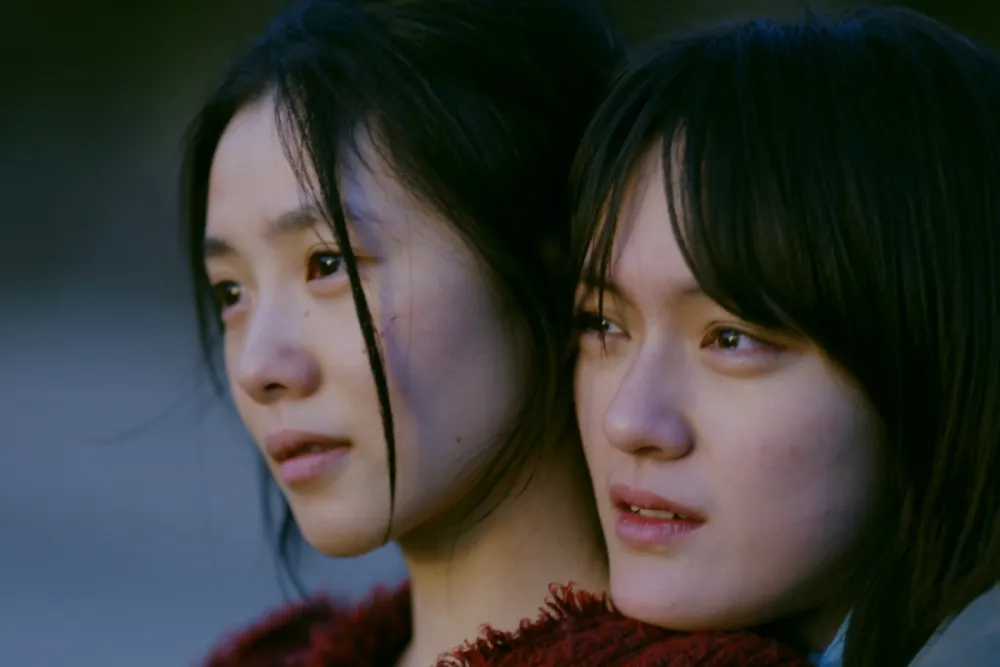
The criticism of female exploitation, for example, is so simplified that all the acts need to be exaggerated: the stunt double’s work needs to be re-done to exhaustion, the roles offered to her need to be very bad, the situation in which her cousin finds herself at the beginning of the film needs to be very precarious. There’s no room for subtlety, generating a tiring film, detached from reality and that seems to ignore that the events shown on screen in a realistic tone should seem at least plausible.
When researching the work, I became curious about the director’s other works, which seem to approach a similar theme in a more subtle way, to check if this is one of the cases in which a high budget is more harmful to a film than helpful.
Yunan (Germany, Canada, Italy, Palestine, Qatar and Jordan, 2025)
Original title: Yunan
Director: Ameer Fakher Eldin
Screenplay: Ameer Fakher Eldin
Main cast: Georges Khabbaz, Sibel Kekilli, Laura Sophia Landauer, Felix Metschan and Hanna Schygulla
Running time: 124 minutes
Yunan is the kind of silent film that rarely wins many awards, but that remains in the memory of viewers for a long time. With a slow narrative that deals with mourning, exile and loneliness in a poetic way, and much more through actions than dialogues, it doesn’t have a very big initial impact, but manages to develop in a very satisfactory way.

What the film brings us is, ultimately, an experience similar to that of an existential crisis suffered by the character. And as simple as this may seem in theory, in practice it involves very long and well-thought-out shots, in addition to an exceptional performance by Georges Khabbaz. Being the opposite of a film that leaves us feeling good, it’s a work to watch and leave thinking about humanity, and our phase of advanced capitalism.
Translated by: Renata Torres


